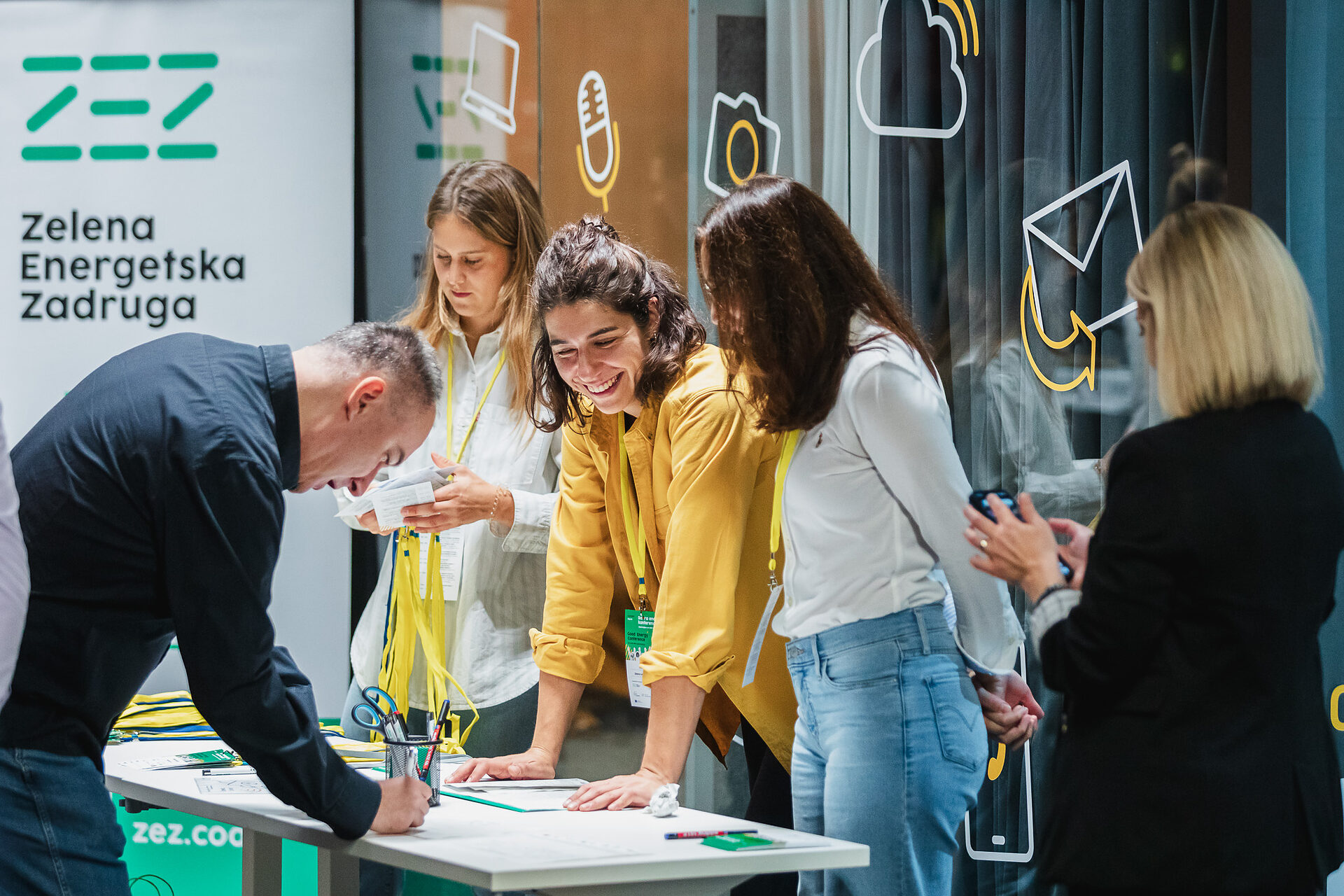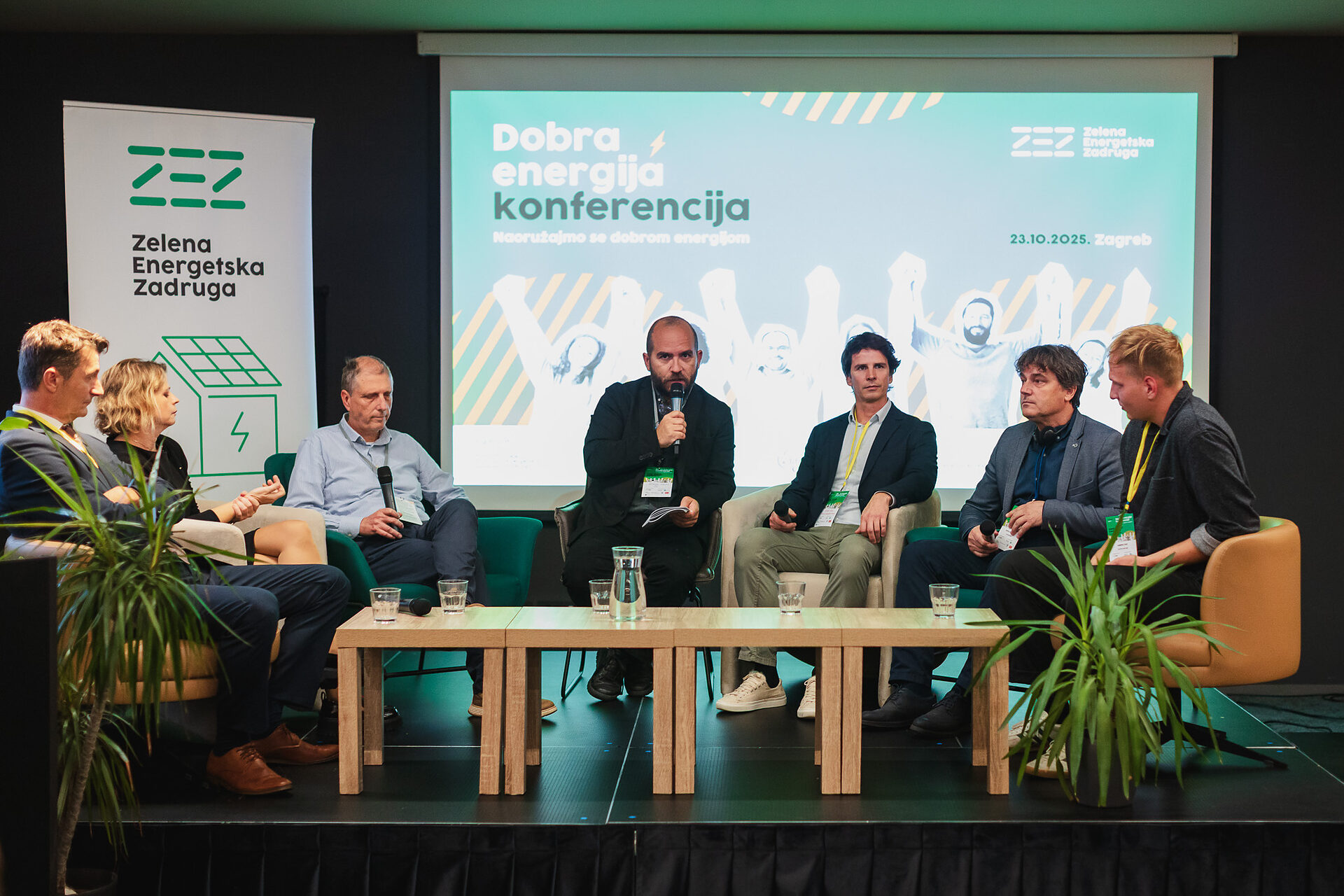Bridging the gap: Fast forward action for energy communities in Croatia
Keywords: citizen energy, waste heat, electricity supply grid, energy transition, geothermal energy, grid expansion, primary energy consumption, thermal energy, heat supply
Subject and objectives of the project
In Croatia, corresponding EU regulations were already incorporated into national legislation three years ago, but as of today (May 2025) there are only four registered energy communities in the country. One reason for this is that the implementation of EU legislation has not been accompanied by the introduction of the necessary support mechanisms – existing regulations and subordinate legislation are not fully in line with current legislation or are even contradictory in some cases. This has led to a burdensome administrative process for future energy communities. On the other hand, the entire transition process has focused on the few energy cooperatives that are already taking a leading role and have an intrinsic interest in this topic. However, the focus was only on the legal, financial and technological aspects of the process. A thorough and detailed analysis of the needs of citizens and local communities to establish new energy cooperatives is missing, as is a deliberative approach to the issue. As a result, there are also no massive demands or dissatisfaction in potential stakeholder groups to demand the obviously necessary policy change and drive the energy transition forward.
The project therefore focuses on the one hand on creating more favorable conditions for accelerating the extremely bureaucratic registration process for energy communities in Croatia, which is difficult for actors to handle in practice. On the other hand, it is about expanding and improving the existing platform Forum for Energy Communities, which is intended to offer support to energy cooperatives and new energy communities.
To achieve this, the project is based on
- A needs assessment and comprehensive survey to motivate citizens and potential early adopters to better understand the existing obstacles and barriers to the establishment of new energy communities,
- the results of consultation meetings with active stakeholders on the obstacles associated with new energy communities and
- the implementation of new campaigns aimed at mobilizing the interest of citizens.
These measures are intended to provide the necessary information to better steer, expand and further strengthen the Forum for Energy Communities as a multifunctional support and dialog platform for citizens and emerging communities. By increasing public interest in the establishment of energy communities and mobilizing citizens, greater demand and visibility from the bottom up is to be achieved, thus creating a stronger basis for negotiating better legal, financial and institutional conditions for energy communities in the country. Last but not least, the project is conducting a dialog with the relevant state authorities and municipal administrations in order to strengthen the energy communities as new actors in the energy sector and to achieve more progressive action on the part of political actors.
Innovation and exemplary nature of the project
The project aims to improve the climate resilience of local communities by increasing the number of energy communities in different regions of Croatia and anchoring energy communities as a participatory element in Croatian society. Thus, it aims to introduce a systemic change in the field of energy production and remove existing barriers to a necessary faster and smoother decentralized energy production that meets the needs of the local community. This will be made possible through a series of coordinated and orchestrated activities that address the gap between citizens’ lack of commitment to climate action and their generally positive attitude towards environmental protection. This project will provide key actors in energy communities in Croatia with the necessary information and tools to tailor their strategies to citizens, municipalities and the state and to drive the energy transition through greater participation of energy cooperatives and energy communities. The targeted mix of detailed surveys, consultations and innovative campaigns is coupled with high-level technical, financial and legal expertise.


Funding theme 6: Renewable energy, energy saving and efficiency
Project implementation:
- Institute for Political Ecology (IPE), Zagreb
- Green Energy Cooperative (ZEZ), Zagreb
- TerraHub, Zagreb
Places of activity: Croatia
Funding period: May 2025 to November 2026
Project costs: Total volume: 261,706 euros, funding from DBU: 129,703 euros
DBU-AZ: 40335
Status: 24.11.2025